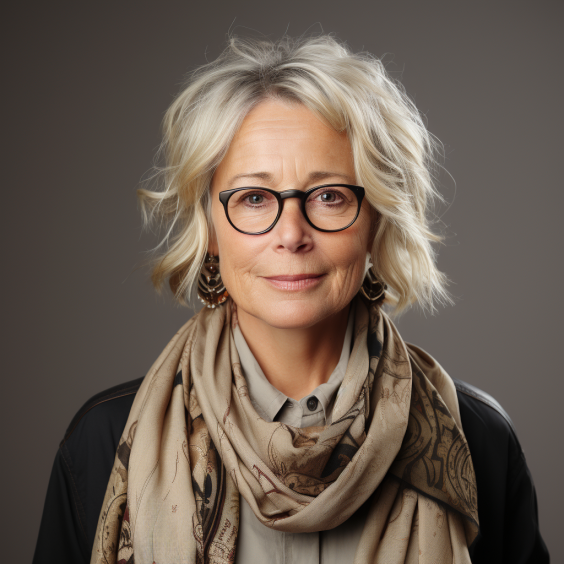Economics

The 2024 Sveriges Riksbank Prize in Economic Sciences in Memory of Alfred Nobel was awarded to Daron Acemoglu, Simon Johnson, & James A. Robinson. All three are from the United States. In a statement, the committee said that the award was given "for studies of how institutions are formed and affect prosperity."
This year’s winners in economic sciences have shown how crucial strong societal institutions are for a nation's prosperity. Countries with weak legal systems and institutions that take advantage of their citizens fail to foster growth or drive positive change. These types of countries typically don't move up the economic income ladder. The Chair of the Committee for the Prize in Economic Sciences, Jakob Svensson, went on to say that "Reducing the vast differences in income between countries is one of our time's greatest challenges." Thanks to this year's laureates, we can make further inroads on this topic.
Physiology or Medicine

The 2024 Nobel Prize in Physiology or Medicine was awarded jointly to Victor Ambros and Gary Ruvkun. They are both from the United States. In a statement, the committee said that the award was given "for the discovery of microRNA and its role in post-transcriptional gene regulation."
Their work helped to further our understanding of gene regulation. All of the cells in our body contain the same chromosomes and the same set of genes. These act as instruction manual for our cells. But if every cell has the same exact instrutions, how do cells specialize into differing type? Think of the difference between muslce cells versus nerve cells. Thanks to Ambros and Ruvkun, we now better understand that gene regulation selects and activates only the correctly relevent set of instructions for cell delevopment. This complex developmental process must proceed according to our changing bodily conditions so that we don't end up with too many intestinal cells compared to nerve cells, and so on. Fascinating!
Physics

The 2024 Nobel Prize in Physics was awarded jointly to John J. Hopfield and Geoffrey E. Hinton. Hopfield is American and Hinton is British-Canadian. In a statement, the committee said that the award was given "for foundational discoveries and inventions that enable machine learning with artificial neural networks."
Their work creating machine learning models was based on equations from physics. Hopfield worked on ways that networks can store information, access it later, and reconstruct that information, similar to how our brains store information. Hinton invented methodology that can discover properties within data sets. This type of methodology is currently at work in large neural networks like ChatGPT and Google Gemini.
Chemistry

The 2024 Nobel Prize in Chemistry was half awarded to David Baker and half award jointly to Demis Hassabis & John M. Jumper. Baker is American from the University of Washington. Hassabis and Jumper are both British and work at Deepmind Technologies, a Google subsidiary. In a statement, the committee said that the part of the award given to David Baker was "for computational protein design." The other jointly awarded half to Demis Hassabis & John M. Jumper was "for protein structure prediction."
Their work on proteins has profoundly broadened our understanding of life's "building blocks." Back in 2003, David Baker combined amino acids (the base components of proteins) to design imaginative and new proteins that were unlike any other. Today, these innovative new proteins can be utilized in vaccines and pharmaceuticals, incredibly tiny sensor, and nanomaterials.
Demis Hassabis and John Jumper's big breakthrough occured in 2020. They solved a 50-year-old chemistry problem: trying to accurately predict protein structures from the component amino acids of which they are made. Researches have used this applicaton to create images of plastic-decomposing enzymes or understand more fully how things are antibiotic resistent.
Literature

The 2024 Nobel Prize in Literature was awarded to Han Kang, a South Korean writer. In a statement, the committee said that the award was given "for her intense poetic prose that confronts historical traumas and exposes the fragility of human life."
Western audiences, especially Americans, may recognize Kang mostly for her novel The Vegetarian published in English in 2016. It won the prestigious Man Booker International Prize that year. She is only the second South Korean Nobel Prize laureate and the first woman after Kim Dae-jung, who won the 2000 Nobel Peace Prize for his work for democracy and human rights in South Korea and East Asia. While she is relatively new to the English publishing world (with only 5 works beginning in 2015), she has been published in Korean since 1995.
Peace

The 2024 Nobel Prize in Peace was awarded to Nihon Hidankyo, a Japanese anti-nuclear advocacy group. In a statement, the committee said that the award was given "for its efforts to achieve a world free of nuclear wapons and for demonstrating through witness testimony that nuclear wapons must never be used again."
Formally called the Japan Confederation of A- and H-Bomb Sufferers Organizations, the group was founded in 1956 by the survivors of the atomic bombings of Hiroshima and Nagasaki. The organization's primary mission is to advocate for the rights and welfare of nuclear survivors and their families, including compensation, medical care, and public recognition of their suffering. As the years have passed and there are fewer and fewer immediate survivors, Nihon Hidankyo has also been deeply involved in global nuclear disarmament efforts, especially through first-hand witness accounts from its members.
 Author
Sherrill Dean
Last Updated: August 19, 2025
Author
Sherrill Dean
Last Updated: August 19, 2025